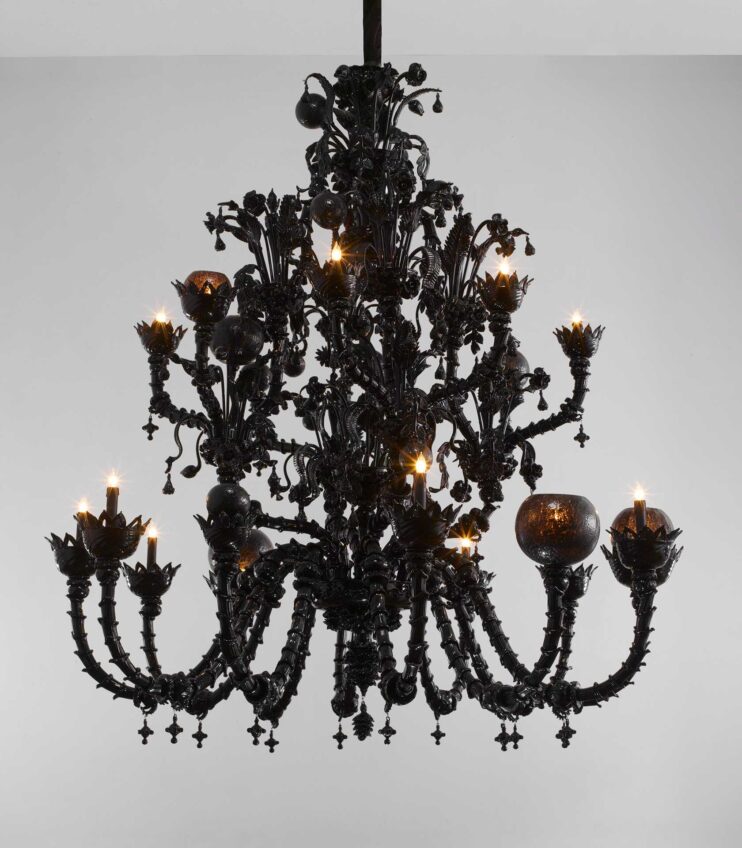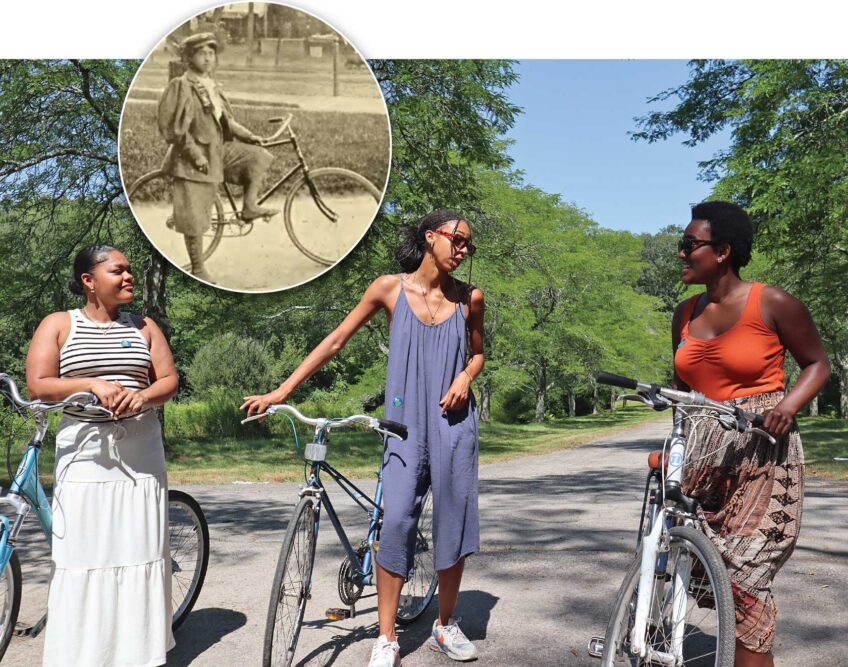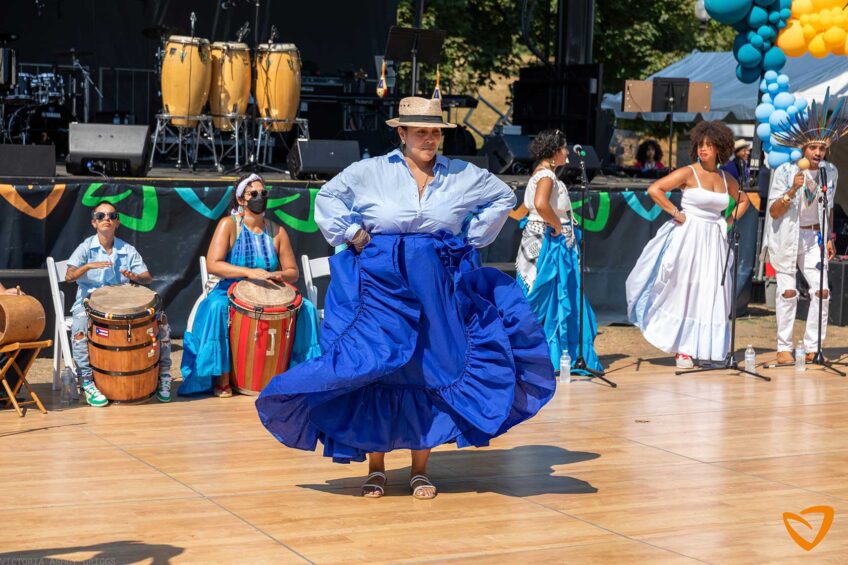Banner [Virtual] Art Gallery
Paul Goodnight in conversation with artist L’Merchie Frazier
![Banner [Virtual] Art Gallery](https://baystatebanner.com/wp-content/uploads/2023/10/Barricades-i-am-the-story_watermark-768x1024.jpg)
View Banner Art Gallery
Sponsored by MFA/Boston
This is the second in a weekly series presenting conversations between Boston artist Paul Goodnight and leading Black visual artists in New England. In this week’s podcast, Goodnight interviews mixed-media artist and poet L’Merchie Frazier, who is also an arts commissioner for Massachusetts. The interview has been condensed and lightly edited.
The Smithsonian Institution has acquired two of Frazier’s pieces, “Robert Smalls: Wheeling Freedom” and “MLK: Letter from a Birmingham Jail.” The Robert Smalls piece will be featured in an exhibition next year with works by Faith Ringgold, Emma Amos, Consuelo Jimenez Underwood and Carolyn Mazloomi.
Paul Goodnight: You have so many hats. Tell me what SPOKE is?
L’Merchie Frazier: SPOKE is an organization that’s been around for 30 years plus. It has as its mission art and mindfulness to approach the social issues of our day, to look at solutions that help us, to work together and to connect humanly. And the tool by which we do that, which binds us all together, is art.
How are you a part of SPOKE?
I’m currently executive director of creative and special partnerships. [SPOKE] was founded by Michael Dowling as his way to leverage conversations with art, to have discussions and to help to reimagine, if you will, a better place for us to be in. Even though people think art is a luxury, in my view, it’s a necessity. For conversations that are not necessarily written down, visual art becomes a document. That has been at least my guide to do my work for over the last 30 years — to think of it [as] creating dialogue. Some subjects are not approachable through black-and-white reading, but become much more available as our eye retains an image. That image works on our psyche.

“Robert Smalls: Wheeling Freedom” by L’Merchie Frazier. Pieced nylon fabric; machine quilting. PHOTO: COURTESY OF THE ARTIST
I always heard that if we can control the image, we can control the mind. Is that just something that I’ve heard said?
I can’t attest [to] that as a guarantee, but I know that at least you can engage the mind. There’s memory. There’s this opportunity to revisit how something strikes you, or maybe it’s an introduction [to something] totally new.
Is art a motivator for you, is it a continuing education for you, or what exactly is it?
Participation in the arts is a legacy that has been handed down to me through my mother from my grandfather, who was a tailor. He did beautiful work, even in quilts, as he kept his children warm in the Blue Ridge Mountains of Virginia. His name was James Dooley, and her name was Theresa Dooley Frazier. She followed [him] around to learn more of his creative genius. She once told me she walked in his shoes. And she began to take up sewing and crocheting, knitting, tatting — anything that had to do with artistic production in textiles.
I grew up around the beautiful things she created. There was this drive inside me, though I was active in looking at politics, looking at language, looking at the human condition. And so, the impetus for using these beautiful things to have conversations with people was what [my mother] sparked in me. I began to incorporate in my own life work — whether it was poetry, whether it was fiber production, whether it was metals — that fiber language. In terms of how the legacy my grandfather really started affects me, it travels with me, and I call this journey “Save me from my amnesia.”

“Col Charles Young_The Moral Compass- Military Attaché, Cartographer, and Road Builder” by L’Merchie Frazier PHOTO: COURTESY OF THE ARTIST
You have ‘the four Rs’ that help you on your journey: remember, reclaim, repair and reimagine. Can you explain what that means?
In the journey that I mentioned of saving me from my amnesia, I’ve been working and researching the history of the Black Atlantic world and the Indigenous world, 500 years of that history and even before that, harking back to Africa and what our roots in Kemet and Kush [in ancient Egypt] are. We were separated geographically from the continent, but that does not mean we didn’t relocate culture [and] our way of understanding. And so, in this search, in trying to remember what we are individually, nationally and as a globe, is this ability to reclaim territory — not only to reclaim but to repair. We’re in this caldron of examining what reparations are. In that word is repair — to mend a wound or an injury to us psychically and physically within that history. And so, it affords us the opportunity to intentionally, unapologetically reimagine the space.
Who most influenced you in the arts?
Carolyn Mazloomi, the head and founder of Women of Color Quilters Network, really became one of the greatest influences in my life. She gave me the opportunity to be in different spaces exhibiting my work.
How do you see your legacy?
I don’t say that I’m creating a legacy. I just say that I’m experiencing walking as a human with other humans on earth and hoping to make it better. That’s what my life’s work is about.
View Banner Art Gallery







